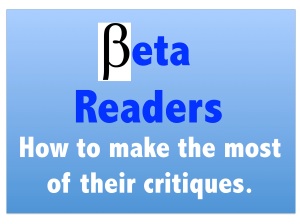 In this blog, I am sharing how I am mentoring a group of high school science students to write and publish a book about their science research experiences by April 2015 with the goal of selling 500 copies by the end of the school year.
In this blog, I am sharing how I am mentoring a group of high school science students to write and publish a book about their science research experiences by April 2015 with the goal of selling 500 copies by the end of the school year.
The student authors I am working with are starting to get beta reader feedback. These beta readers are English teachers, science professionals, and people in the author’s target audience. They all received a draft copy of the author’s book to read and were asked to provide feedback on the content. We used a Beta Reader Checklist for Authors to coordinate this process.
As expected, about half the beta readers have not responded yet, after about a month of having our books. This is normal. People are busy, and it’s the holiday season, so we have to expect to follow up and remind people what we requested of them. We also have to realize that some beta readers will not follow through for various reasons. They may be too busy, they may not like the book, or they may decide they don’t want to give feedback. Whatever the reason, about a one third return rate is probably normal—in other words, expect one out of three people you ask to beta read your book to actually provide a useful response. We expected this return rate, so we asked about three times as many people as we needed.
The responses so far are all across the spectrum. Some are detailed critiques of each part of the book, while others are just broad critiques of the book as a whole. Both types of critiques are useful. The important thing for the author is to accept all critiques graciously. Thank the beta reader now, and later on send them a free copy of the final book. Realize that an author is not obligated to use anything a beta reader says, but should approach each critique objectively. Some critiques may require further substantiation. For example, if the beta reader says some part of the book is not clear or requires more development, try to ask other people what they think. Don’t overreact to one critique and completely change the book. In the end, the beta readers provide a helpful second opinion that should be taken into account with all other critiques and editing comments.
My next post will be after the holidays and discuss the preparation for publication release.
Subscribe to this blog at https://bryanholmesstem.wordpress.com to get email updates of my posts with weekly tips you can use in your classroom as I describe how I am mentoring six high school science students to become published authors by April 2015. Also, please give me your feedback, and please share blog posts with other teachers or anyone who may benefit.
